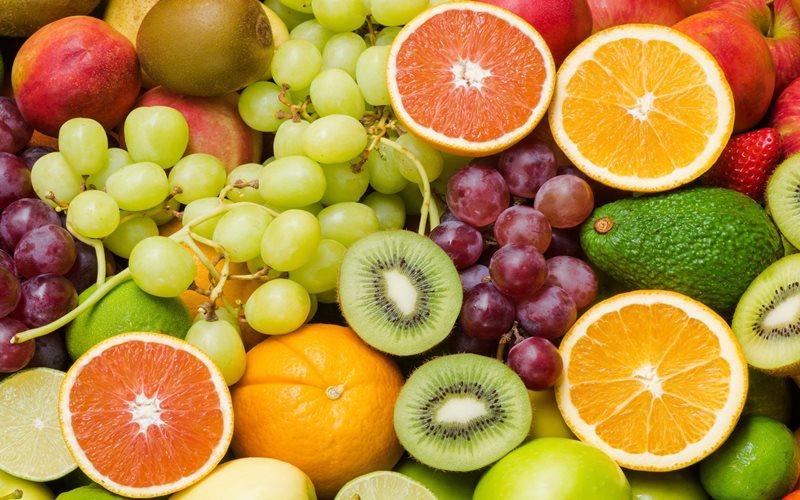Fruits are a nutrient-rich food group that offers numerous health benefits. But does eating a lot of fruit cause weight gain, and which fruits can lead to this issue? Let’s explore these questions in today’s article!
1. Does Eating Fruit Cause Weight Gain?
 Can Eating Fruit Make You Gain Weight?
Can Eating Fruit Make You Gain Weight?
While fruits offer an array of health benefits and essential nutrients, a common concern is whether they can lead to weight gain.
According to nutrition experts, consuming fruit can indeed contribute to weight gain, but this depends on the type of fruit and the amount consumed. Certain fruits, such as jackfruit, avocado, and durian, tend to be higher in sugar and calories and may lead to weight gain if eaten in excess.
2. Fruits That May Contribute to Weight Gain
 Fruits That Can Cause Weight Gain
Fruits That Can Cause Weight Gain
Durian
With 147 calories in 100g, durian is a fruit to be mindful of if you’re trying to lose weight. Its high calorie content means that overconsumption can quickly lead to weight gain.
Banana
Bananas provide a quick energy boost, but they are also high in sugar and calories. A medium-sized banana (118g) contains approximately 105 calories. Overindulging in bananas can contribute to weight gain.
Avocado
Avocados are not only calorie-dense but also contain a significant amount of fat. On average, 100g of avocado provides 161 calories. This high-calorie content makes avocados a common food choice for individuals aiming to gain weight.
Coconut
While coconut water is not a concern for weight gain, the flesh of the coconut is. In just 28g of coconut flesh, there are approximately 99 calories and a substantial amount of fat. Regular consumption of coconut flesh can lead to weight gain.
Ripe Mango
A 100g serving of ripe mango contains 65 calories. While this may not seem like a significant amount, overconsumption of mangoes without portion control can contribute to weight gain.
3. Timing Matters: When to Avoid Eating Fruit to Prevent Weight Gain
 Timing Your Fruit Intake to Avoid Weight Gain
Timing Your Fruit Intake to Avoid Weight Gain
After Meals
It is common for people to eat fruit after a meal as a dessert. However, this practice can pose risks to your digestive health. Fruit tends to be digested more rapidly than other foods, and consuming it after a meal can lead to fermentation and the production of toxins that affect the stomach and intestines. Additionally, the high sugar and calorie content of fruit can contribute to weight gain if consumed in large quantities after a meal.
During Meals
Eating fruit with your meal is another habit to avoid. Fruit is high in fiber, and consuming it with your meal can make you feel full quickly, leaving less room for other foods. Furthermore, the high-calorie content of fruit means that including it in your meal can contribute to weight gain.
Before Bedtime
Consuming fruit before bed can have detrimental effects on your health, especially if you suffer from acid reflux or digestive issues. Additionally, the sugar spike from fruit can disrupt your sleep and negatively impact your overall sleep quality.
4. Best Times to Eat Fruit
 Ideal Times for Fruit Consumption
Ideal Times for Fruit Consumption
To maximize the benefits of fruit and minimize the risk of weight gain, consider the following timings:
- Morning: This is the ideal time to eat fruit as your digestive system is most active. Eating fruit in the morning allows your body to absorb the maximum amount of nutrients and beneficial compounds.
- Snack Time: Fruit is a perfect choice for a snack, providing you with the energy you need throughout the day without interfering with your main meals.
- 30-60 Minutes Before Exercise: Eating fruit before working out or engaging in sports can give you a natural energy boost. This helps improve endurance and enhances the effectiveness of your exercise routine.
- After Working Out: Fruit is also a great way to rehydrate and replenish your body after a workout.
Today’s article has hopefully provided clarity on whether eating fruit can lead to weight gain and which fruits are more likely to contribute to this issue. Remember to create a balanced fruit intake plan to ensure you reap the nutritional benefits without worrying about unwanted weight gain!
Source: medlatec.vn
Fruit Consumption’>Risk of Acne May Increase with Increased Fruit Consumption
What You Need to Know About Chocolate
Despite its tasty flavor, there are long-standing concerns that eating too much chocolate may lead to weight gain and tooth decay. Despite this, chocolate continues to be a popular indulgence during holidays and a meaningful gift to share with loved ones. It is also a popular ingredient for beauty treatments.





































